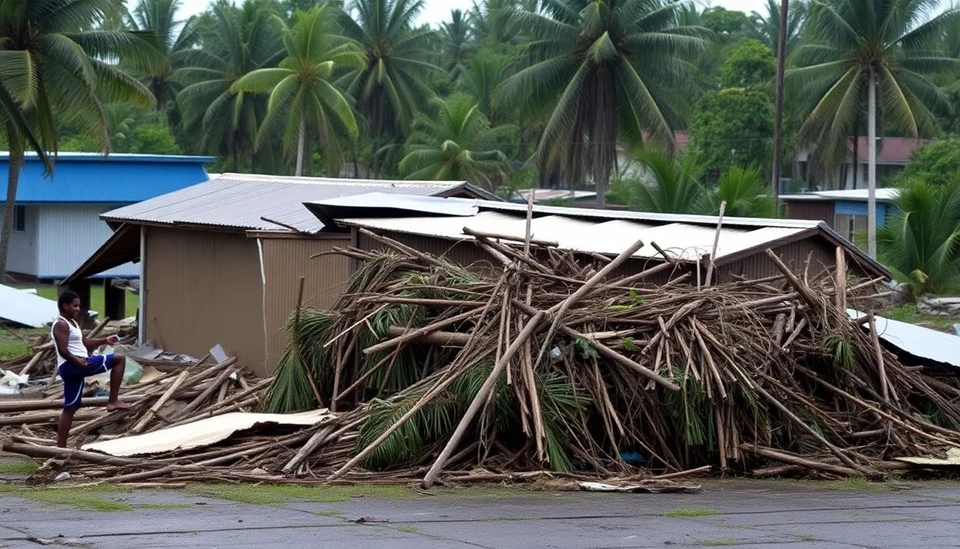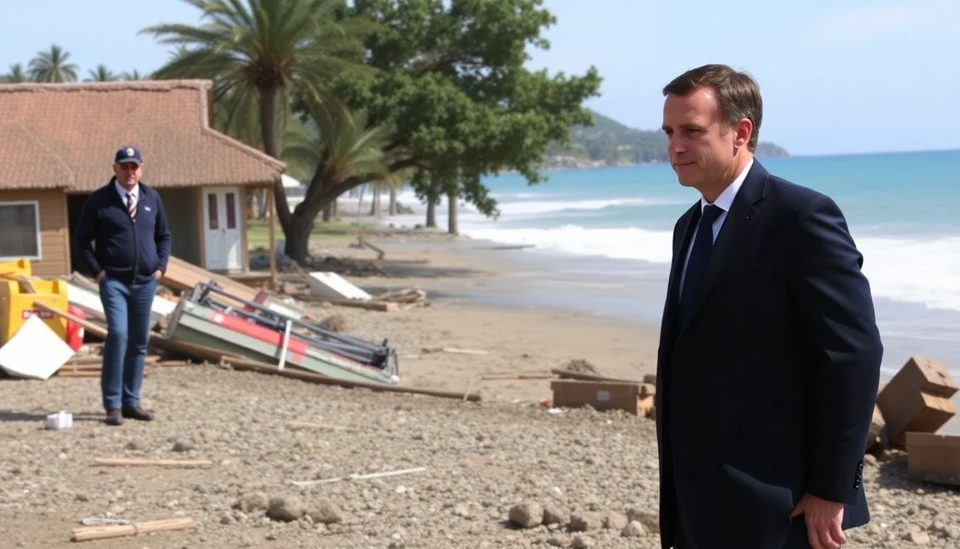
In a heart-wrenching development, nearly 1,000 people are feared dead following a severe cyclone that ravaged Mayotte, a small island located between Madagascar and the coast of Mozambique. The cyclone, named Cilida, struck the archipelago late on December 14, 2024, unleashing torrential rains and violent winds that led to catastrophic destruction across the region.
The intensity of the cyclone took residents by surprise, with many caught off-guard as normal weather conditions quickly deteriorated. Eyewitness accounts describe scenes of chaos and despair as roofs were ripped off homes, roads became impassable, and vital infrastructure was severely damaged.
Search and rescue operations have been initiated by local authorities, but the situation on the ground remains dire. With communication networks down and many areas still inaccessible, rescuers are struggling to reach those trapped beneath debris or stranded in remote locations. The regional minister of Mayotte, Soibahadine Ibrahim, has called for national and international assistance, emphasizing the urgency of the humanitarian crisis unfolding.
The cyclone's effects are not limited to physical damage; reports indicate that the storm has also disrupted essential services, leaving residents without access to clean water and medical care. Hospitals are overwhelmed with casualties, and the lack of resources poses a significant challenge to the ongoing rescue efforts. Health officials are worried about the potential outbreak of waterborne diseases among the population, further exacerbating the emergency.
The French government has reacted swiftly, pledging support to the affected areas. French President Emmanuel Macron expressed his condolences to the families of those impacted and confirmed that rescue teams, as well as humanitarian aid, are being mobilized to provide assistance. In an official statement, Macron stressed the importance of solidarity during such tragic events, calling for unity in both domestic and international efforts to aid Mayotte.
The international community has begun to respond as well, with several neighboring countries offering help. Organizations such as the Red Cross and various non-governmental organizations are coordinating their efforts to bring relief to the devastated island. Relief supplies, including food, water, and medical assistance, are being prepared for delivery as the scale of the disaster becomes clearer.
As Mayotte grapples with the aftermath of this catastrophic event, the focus remains on recovering lives and rebuilding the community. The government and various organizations are gearing up for the long-term task of recovery, which will require substantial resources and time. The local population, already facing numerous challenges, now finds itself in the midst of a humanitarian crisis heightened by the cyclone's fury.
The devastating impact of Cyclone Cilida serves as a tragic reminder of the vulnerability of islands to extreme weather events, particularly in the context of climate change. Experts warn that such cyclones may become more frequent and intense in the coming years, putting coastal and island communities at increased risk. More proactive measures must be taken to enhance resilience and preparedness for such disasters in the future.
As the new year approaches, the people of Mayotte are left to hope for a swift recovery and the restoration of normalcy in their lives. The tragic loss of life and the destruction of property has united the island's communities in grief and determination to support one another as they face the long road ahead.
As the rescue efforts continue, the world watches and waits, hoping for good news amid the tragedy that has befallen this small yet resilient island.
#Mayotte #CycloneCilida #NaturalDisaster #HumanitarianCrisis #ClimateChange #RescueEfforts #InternationalAid
Author: Sophie Bennett
